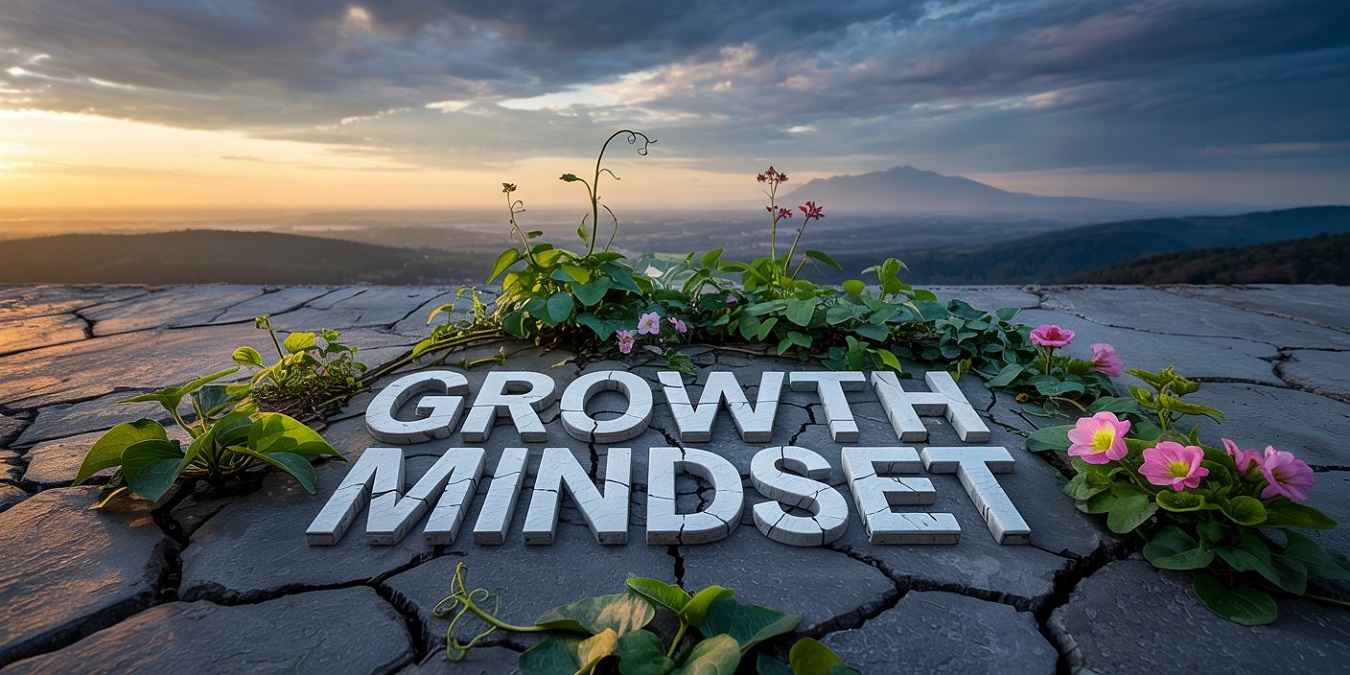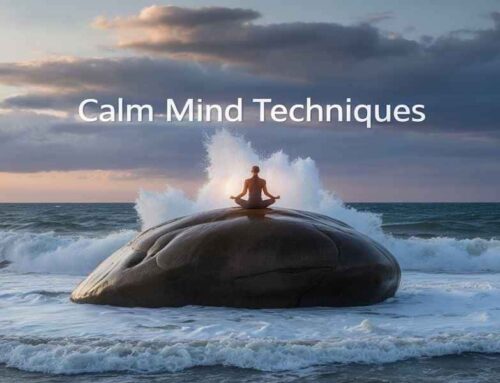
The Growth Mindset
Have you ever wondered why some people seem to thrive on challenges while others shrink away from them? It’s not just about talent or luck, it’s about how you think. Enter the growth mindset, a transformative approach that can change everything in your life.
This isn’t some abstract theory reserved for psychologists or self-help gurus. It’s a practical, powerful tool you can use to unlock your potential, overcome obstacles and achieve what once seemed impossible.
In this post, we’ll dive into what a growth mindset is, why it matters and how you can start cultivating it today. Ready to rethink the way you see yourself and the world? Let’s get started.
What Is a Growth Mindset?
Picture this: two people face the same setback, a failed project, a missed opportunity. One gives up, convinced they’re just not cut out for it. The other dusts themselves off, learns from the experience and tries again.
What’s the difference? It’s all about mindset. A growth mindset, a term coined by psychologist Carol Dweck, is the belief that your abilities and intelligence can develop through effort, learning and persistence.
Contrast that with a fixed mindset, where you assume your talents are set in stone and failure feels like a dead end.
Think about your own life for a moment. Do you see challenges as threats or opportunities? The growth mindset flips the script. It’s not about being perfect, it’s about growing.
Take Thomas Edison, for example. He famously said, “I have not failed. I’ve just found 10,000 ways that won’t work.” That’s the essence of this mindset: every stumble is a step toward success.
The Power of Belief
Your beliefs shape your reality. Henry Ford put it perfectly: “Whether you think you can or think you can’t, you’re right.” A growth mindset starts with believing you can improve. Studies back this up; research from Dweck and others shows that students who embrace this perspective outperform those who don’t, even when starting from the same baseline. Why? Because they see effort as a path to mastery, not a sign of weakness.
Reflect on a time when your belief in yourself made a difference. Maybe you aced a test because you studied hard or maybe you avoided trying because you thought, “I’m just not good at this.” Your mindset sets the tone. When you trust in your ability to grow, you’re more likely to take risks, push through difficulties and come out stronger.
Embracing Challenges
Challenges can feel intimidating, right? But here’s the thing: they’re also your greatest teachers. With a growth mindset, you stop dodging tough situations and start seeing them as chances to stretch yourself. Consider Michael Jordan, one of the greatest athletes of all time. He once said, “I’ve missed more than 9,000 shots in my career… I’ve failed over and over again in my life. And that is why I succeed.” Failure didn’t define him; it fueled him.
What about you? Is there a challenge you’ve been avoiding? Maybe it’s learning a new skill or tackling a tough conversation. Reframe it. Instead of thinking, “I might mess up,” ask, “What can I learn from this?” That shift changes everything. Suddenly, obstacles become opportunities.
Learning from Failure
Failure stings. No one likes it. But here’s a secret: it’s also one of the best ways to grow. A growth mindset doesn’t pretend failure doesn’t hurt, it teaches you to use it. Look at J.K. Rowling. Before Harry Potter became a global phenomenon, she faced rejection after rejection. Yet she kept writing, learning and improving. Today, her story inspires millions.
How do you handle setbacks? Do you beat yourself up or look for the lesson? Try this next time: write down what went wrong, what you learned and one step you can take forward. It’s not about ignoring the pain, it’s about turning it into progress. As Carol Dweck herself said, “In a growth mindset, challenges are exciting rather than threatening. So rather than thinking, oh, I’m going to reveal my weaknesses, you say, wow, here’s a chance to grow.”
Cultivating a Growth Mindset
So, how do you make this mindset yours? It’s not an overnight switch, but a journey of small, intentional steps. Start by embracing effort. When something’s hard, don’t back off, lean in. Seek feedback, even when it’s tough to hear. Celebrate progress, not just perfection. These habits build resilience and adaptability over time.
Want a practical tip? Next time you catch yourself saying, “I can’t do this,” add “Yet” to the end. “I can’t do this… yet.” That tiny word opens the door to possibility. You can also explore resources like Dweck’s book Mindset or online courses on personal development. What’s one area of your life where you’d like to grow? Pick it and start today.
Conclusion
Life throws curveballs, there’s no avoiding that. But with a growth mindset, you can change everything about how you respond. This isn’t about being flawless; it’s about believing you can evolve, embracing challenges and learning from every experience. From your career to your relationships, this simple shift in thinking unlocks doors you didn’t even know existed. It’s not magic, it’s a choice.
Ready to start cultivating your growth mindset? Take a moment to identify one challenge or goal in your life. Approach it with curiosity, not fear and see where it takes you. Share your thoughts or progress in the comments below. I’d love to hear how this journey unfolds for you!
Call to Action
- Share this article with someone who needs to hear it.
- Comment below with one area where you’ll apply a growth mindset this week.
- Follow us for more insights on personal and professional growth.
The future belongs to those who embrace the power of yet. Will you join them?
Frequently Asked Questions
1. Q: What is a growth mindset?
A: A growth mindset is the belief that abilities and intelligence can improve with effort, learning and persistence. It sees challenges as opportunities, not threats. Coined by Carol Dweck, it’s about embracing “Yet,” unlocking potential you didn’t know you had.
2. Q: How is a growth mindset different from a fixed mindset?
A: A fixed mindset views talents as set in stone, you’re born with them or not. A growth mindset sees them as moldable through hard work. This difference fuels resilience, encouraging you to face obstacles and grow, unlike the limits a fixed mindset imposes.
3. Q: What are the benefits of having a growth mindset?
A: It builds resilience, enhances performance and ignites excitement for challenges. Students, for example, tackle tough topics and recover quickly from failures. It fosters a love for learning, turning obstacles into stepping stones for endless growth.
4. Q: How can I develop a growth mindset?
A: Embrace challenges as chances to learn. Reflect on setbacks for lessons, not blame. Seek feedback and use it. Celebrate effort, not just wins and be patient, it’s a gradual shift, not an overnight fix.
5. Q: Is there scientific evidence supporting the growth mindset?
A: Yes! Carol Dweck’s studies show it works, students taught this mindset boosted their grades significantly. Research spans sports, business and more, confirming it’s a proven approach, not just a motivational buzzword.
6. Q: Can you give examples of famous people who have a growth mindset?
A: Sure! Edison’s countless tries birthed the lightbulb. Jordan turned rejection into NBA greatness. Rowling’s persistence past rejections created Harry Potter. They all thrived by seeing effort as progress.
7. Q: How does a growth mindset apply to education?
A: It positions effort as the path to mastery. Students view struggles as growth, not failure, boosting motivation and learning passion. Teachers can reinforce it by praising hard work and progress over innate ability.
8. Q: How can a growth mindset help in the workplace?
A: It sparks innovation and adaptability. Workers see challenges as growth opportunities, learning from errors to improve. Leaders can foster it with training and example, building dynamic, engaged teams.
9. Q: Can a growth mindset improve personal relationships?
A: Yes! It encourages empathy and growth through conflict. Instead of stubbornness, you seek understanding, strengthening ties. It also promotes patience, recognizing everyone can change and improve.
10. Q: Are there any books or resources you recommend for learning more about the growth mindset?
A: Try Mindset: The New Psychology of Success by Carol Dweck for deep insights. Coursera, edX, TED talks and Psychology Today also offer accessible, practical resources to explore further.














